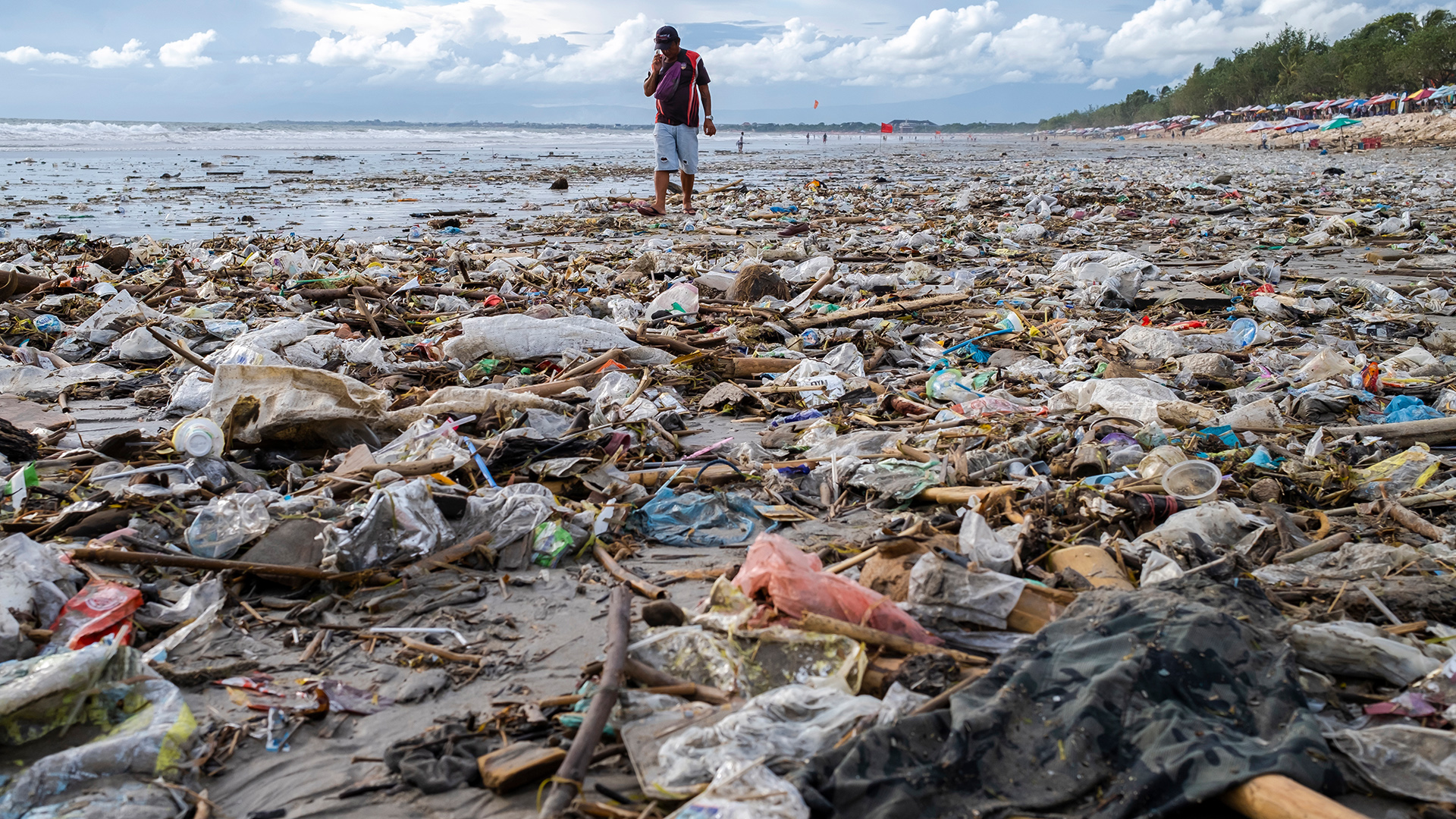Status: 04/16/2023 1:12 pm
G7 environment ministers have agreed to an earlier timetable in the fight against plastic waste. There are also ambitious plans for renewable energies – but in some cases without a concrete timeline.
G7 environment ministers want to end plastic pollution by 2040. They agreed to this after two days of deliberations in Sapporo, Japan. With this decision, the G7 round goes a step further than before, as in 2019 the G20 countries agreed on the end date of 2050. The G7’s exact plans for achieving the new target have not been disclosed.
G7 climate ministers plan to rapidly expand renewable energies
tagesschau24 1:00 p.m., April 16, 2023
“Inexpensive plastic increasingly dominates disposable products in industrialized countries,” Federal Environment Minister Steffi Lemke (Greens) said in a statement. “Therefore, the G7’s campaign to rapidly end plastic waste is now critical.” A legal agreement to reduce plastic waste must be reached by the end of 2024.
Science estimates that 4.8 to 12.7 million tons of plastic waste end up in the ocean every year. This is roughly equivalent to one truckload per minute. According to information from the environmental charity WWF, recent calculations – which include lakes, rivers and oceans – assume that 19 to 23 million tonnes of plastic waste end up in these ecosystems each year.
Definite targets for wind and solar energy expansion
Another topic of the meeting was energy supply – here ministers set themselves more ambitious targets for renewable energy expansion: For the first time, G7 ministers set concrete targets for expanding solar energy and wind energy in the oceans. The final document shows. According to this, 150 GW of offshore wind capacity will be added by 2030, equivalent to the capacity of 150 nuclear power plants. Also, an additional 1000 GW of photovoltaics is to be installed. Germany has already decided to build around 150 GW of solar power and 22 GW of offshore capacity by 2030.
There is no timeline for phasing out coal-fired power plants
G7 ministers pledged to accelerate the phase-out of fossil fuels but did not set a deadline for phasing out coal-fired power plants at the end of two days of talks in Sapporo. In light of the current global energy crisis and economic dislocation, “we reaffirm our commitment to accelerate the clean energy transition to achieve net-zero greenhouse gas emissions by 2050,” read the meeting’s 36-page closing statement. Ministers agreed on the importance of finding efficient, affordable and diverse sources of energy, underlining a “commitment to implement immediate, short and medium-term measures in this critical decade”.
The timeline for phasing out coal-fired power plants has long been a matter of debate. For example, Japan relies on coal for nearly a third of its electricity generation and is promoting so-called clean coal, which uses carbon capture technologies to produce hydrogen, which produces only water when used as fuel. The published document reiterates the need to urgently reduce carbon emissions and achieve a “largely decarbonised energy sector” by 2035. The phrase “mainly” accommodates the continued use of fossil fuels. Ministers agreed, however, that priority should be given to phasing out “non-containment” coal power generation – that is, power plants that do not use mechanisms to capture emissions to prevent them from escaping into the atmosphere.
The G7, an informal grouping of the seven leading industrialized countries in the West, accounts for 40 percent of global economic activity and a quarter of global carbon emissions. In addition to Germany, the G7 includes France, Italy, Japan, Canada, the United States and Great Britain. Japan holds the presidency of the G7 this year.

“Communicator. Entrepreneur. Introvert. Passionate problem solver. Organizer. Social media ninja.”







More Stories
New video from Montecito Villa: Prince Harry honors US soldier
Booked: Lufthansa Allegries Business Class to Canada
Sunak's Rwanda plan hurts Britain and the West